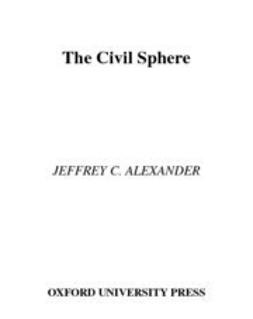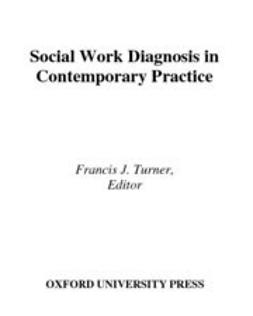Glassman, Ronald M.
The Origins of Democracy in Tribes, City-States and Nation-States
Part I. The Emergence of Democracy in Bands and Tribes
1. Civilizational Peculiarities Versus Ideal Typicalities
Ronald M. Glassman
2. Social Structure and Conflict Groups
Ronald M. Glassman
3. Political Institutions
Ronald M. Glassman
4. Legitimacy
Ronald M. Glassman
5. Economy and Polity
Ronald M. Glassman
6. Warfare and Religion
Ronald M. Glassman
Section 2. Tribal Society: Clan and Tribal Democracy
7. Civilizational Peculiarities Versus Ideal-Typicalities
Ronald M. Glassman
8. Social Structure and Conflict Groups
Ronald M. Glassman
9. Political Institutions
Ronald M. Glassman
10. Horticulture, Matrilineal Clans, and the Rise of Status and Power of Women
Ronald M. Glassman
11. Warfare and Politics
Ronald M. Glassman
12. The Confederacy of Tribes
Ronald M. Glassman
13. Tribal Games
Ronald M. Glassman
14. Religion and Politics
Ronald M. Glassman
15. Legitimation Processes
Ronald M. Glassman
16. Economy and Polity
Ronald M. Glassman
17. Conclusions on Band and Tribal Societies
Ronald M. Glassman
Section 3. Horticultural Villages Tribes: Matri-Clans and the Rise of Theoretic Priesthoods
18. Civilizational Peculiarities Versus Ideal-Typicalities
Ronald M. Glassman
19. Social Structure and Conflict Groups
Ronald M. Glassman
20. Religion and Politics
Ronald M. Glassman
21. Women and Politics in Horticultural Societies
Ronald M. Glassman
22. Warfare in Horticultural Village Societies
Ronald M. Glassman
23. Political Institutions: Theocratic Despotism
Ronald M. Glassman
24. Legitimation Processes
Ronald M. Glassman
Section 4. Pastoral Herding Tribes, Patri-Clans, and the Rise of the Military Kingship
25. Civilizational Peculiarities Versus Ideal-Typicalities
Ronald M. Glassman
26. Herding Tribes, Patri-Clans, and the Rise of the Military Kingship
Ronald M. Glassman
27. Social Structure and Conflict Groups
Ronald M. Glassman
28. Warfare, Women, Religion, and Politics
Ronald M. Glassman
29. The Political Institutions of Herding Society: Despotic Military Kingship
Ronald M. Glassman
30. Military Kingship and State Violence
Ronald M. Glassman
31. The Legitimacy Processes of Herding Societies
Ronald M. Glassman
32. Economy and Polity
Ronald M. Glassman
33. Some Impediments to Democracy in Horticultural and Herding Societies
Ronald M. Glassman
Section 5. Conclusions: The Paradoxes of Tribes
34. The Paradox of Tribes
Ronald M. Glassman
Part II. From Tribal Society to City-States in the Ancient Middle East
35. Introduction to the Middle Eastern Grain, Agricultural, and Animal Herding Societies
Ronald M. Glassman
36. Democracy in the Sumerian City States: The Assembly, the Elders, and the King
Ronald M. Glassman
37. Projections of the Tribal Assembly in the World of the Sumerian Myths
Ronald M. Glassman
38. The Status and Role of Women in Ancient Sumer
Ronald M. Glassman
39. The Emergence of the Temple Economy Overseen by Priests and Priestesses in the River-Flood Areas
Ronald M. Glassman
40. The Rise of the Kingship: Expansionary, Genocidal Warfare
Ronald M. Glassman
41. From the Theocratic State to the Kingly-Bureaucratic State
Ronald M. Glassman
42. The Reform Movements and the Ethic of Social Justice
Ronald M. Glassman
43. The Pastoral Tribal Invasions and the Partial De-Legitimation of The Kings
Ronald M. Glassman
44. The Revival and Expansion of the Private Economic Sector in Mesopotamia
Ronald M. Glassman
Section 7. Vestiges of Tribal Democracy and the Rise of Commercial Oligarchy in the City-States of Syria, Canaan and Phoenica
45. The Early Agricultural City-States
Ronald M. Glassman
46. The City-State, Ugarit: A Great Coastal Trading City
Ronald M. Glassman
47. West Semitic Myths and Legends
Ronald M. Glassman
48. Ebla
Ronald M. Glassman
49. The Political Structure of the Canaanite City-States: Monarchy and Merchant Oligarchy
Ronald M. Glassman
50. From Canaanites to Phoenicians
Ronald M. Glassman
51. The Political Institutions of the Phoenician City-States
Ronald M. Glassman
52. Carthage
Ronald M. Glassman
53. Religion and Women in Phoenician Society
Ronald M. Glassman
Section 8. Israel: From Pastoral Tribalism to Mosaic Monotheism to Monarchy and After Babylon to Theocracy
54. The Pastoral Origins of the Hebrews: “Those Who Crossed the River”
Ronald M. Glassman
55. Egypt and the Hebrews
Ronald M. Glassman
56. Egypt After the Hyksos Invasion: The New Kingdom and the New Religious Ideas
Ronald M. Glassman
57. Creation and the Supreme Deity in the Theology of Egypt
Ronald M. Glassman
58. The Hebrews Enter the Nile Delta
Ronald M. Glassman
59. From Joseph to Moses
Ronald M. Glassman
60. Israelite Tribal Confederation Enters Canaan
Ronald M. Glassman
Section 9. The Kings and Prophets in the Land of Canaan
61. The Rise of the Monarchy
Ronald M. Glassman
62. The Prophets: Moralistic Monotheism, Social Justice, and the Doomsday Theodicy
Ronald M. Glassman
Section 10. The Babylonian Exile: The Return and the Establishment of the World’s First Pure Theocracy
63. The Babylonian Exile
Ronald M. Glassman
64. Return from Exile: Theocracy Established
Ronald M. Glassman
Section 11. Monotheism vs. Polytheism: Human Self-Conciousness, the Domination of Nature, and the Valuation of Human Life
65. Monotheism and the Jews
Ronald M. Glassman
66. The Status of Women in Societies Embracing a Patriarchal Monotheistic God
Ronald M. Glassman
Part III. Greece
67. Minoan and Mycenaean Civilizations
Ronald M. Glassman
68. The Expansion of Mycenaean Greek Civilization
Ronald M. Glassman
Section 13. The Collapse of Mycenaean Civilizations and the Re-Tribalizations of Greece
69. The Doric Invasions and the Regression to Tribalism
Ronald M. Glassman
70. Doric Tribalism and the Culture of Greece and, Doric Tribalism and the Revival of Mycenaean Tribalism During the Dark Age
Ronald M. Glassman
71. Doric Religion
Ronald M. Glassman
72. The Olympic Games: Doric Tribal Culture Engenders a Pan Hellenic Cultural Complex
Ronald M. Glassman
Section 14. The Heavy Armored Phalanx and the Democratic Revolution
73. From Aristocratic Champions to the Phalanx of the Common Men
Ronald M. Glassman
74. The Cavalary Aristocrats—“Hippeis,” and Their Declining Role in Mainland Greek Warfare
Ronald M. Glassman
75. Sparta: The Re-Crudescence of Tribal Democracy on a Hoplite Base
Ronald M. Glassman
76. The Spartan Women: Economic Control, Sexual Liberation, and Olympic Athletics
Ronald M. Glassman
77. Some Notes on the Democratization of Argos and Crete
Ronald M. Glassman
78. The Political Paradox Involved in the Transition from the Tribe to the City-State: The Greek Case
Ronald M. Glassman
Section 15. The Re-Civilization of Greece
79. The Revival of Trade in the Aegean Region
Ronald M. Glassman
80. Trade and the Changing Class Structure of Greece
Ronald M. Glassman
Section 16. The Rise of the Greek City-States
81. The Rise of the Greek Trading Cities
Ronald M. Glassman
82. The Transition from Tribal to City-State Political Organization
Ronald M. Glassman
83. The Rise of Democracy in Syracuse
Ronald M. Glassman
84. A Note on Democracy in Kroton and Korinthos
Ronald M. Glassman
85. Class Conflicts in the Greek City States During the Era of Expansionary Trade
Ronald M. Glassman
86. Conclusions on the Causes of Democracy in Greece: The Hoplite Phalanx Military Innovation, and, the Trade-Capitalist Economic Revolution
Ronald M. Glassman
Section 17. The Full Flowering of Greek Democracy
87. The Ideology of Equality and Democracy
Ronald M. Glassman
88. The Rise of Legal Authority in the Greek City States
Ronald M. Glassman
Section 18. The Rise of the Rational-Scientific World-View
89. The Ionians of Asia Minor Make Contact with the Civilizations of the Middle East and the Tribes of the Black Sea
Ronald M. Glassman
90. The Decline of Greek Religion After Homer and Hesiod
Ronald M. Glassman
91. The Rise of the Rational-Scientific World View
Ronald M Glassman
92. The Rise of the Social Sciences
Ronald M Glassman
Section 19. Women in Ancient Greece: Economic, Religious and Sexual Roles—But No Political Role
93. Doric Women
Ronald M. Glassman
94. The Status of Ionian Women
Ronald M. Glassman
95. The Women Philosophers, Scientists, Doctors, and Mathematicians of the Greek World
Ronald M. Glassman
96. Women and Religion
Ronald M. Glassman
Part IV. The Norse Tribes: From Tribal Democracy and Aristocracy to City-State Democracy and the Kingly-Bureaucratic State
97. Comparison Between the German Tribes and the Celtic Tribes
Ronald M. Glassman
98. The German or Norse Tribes
Ronald M. Glassman
99. The Economy of the Norse Tribes: Herding and Agriculture
Ronald M. Glassman
100. The Religion of the Norse Tribes: No Official Priesthood
Ronald M. Glassman
101. Marriage, Clans, and Clan Retribution
Ronald M. Glassman
102. Language and Runes
Ronald M. Glassman
103. Debt Slavery and War Captive Slavery
Ronald M. Glassman
104. Civilizational Influences
Ronald M. Glassman
105. Feasts, Celebrations, and Guest Friendship
Ronald M. Glassman
106. German or Norse Tribal Assemblies and Courts, and the Rise of the Monarchies
Ronald M. Glassman
107. The Political Structure of the Norse Tribes: The Assembly of Warriors with Aristocratic Domination
Ronald M. Glassman
108. A Closer Look at the Germanic, or Norse, Assemblies
Ronald M. Glassman
109. War Chiefs and Military Aristocrats
Ronald M. Glassman
110. Iceland: Nobles and Freemen Flee the Centralizing Power of the Norwegian King and Reestablish Tribal Democracy (with Aristocratic Domination)
Ronald M. Glassman
111. The Anglo-Saxon-Jute Tribal Confederation and Its Moot and Folk-Moot
Ronald M. Glassman
112. The Court Councils of the Centralizing Monarchies
Ronald M. Glassman
Section 21. The Culture and Social Structure of the Norse Tribes as Seen Through the Norse Myths
113. Creation of the World and the Gods
Ronald M. Glassman
114. The Class Structure of the Norse Tribes as Shown in “The Song of Rig”
Ronald M. Glassman
115. Women in the Myths and Sagas
Ronald M Glassman
116. Games and Individual Competitions
Ronald M Glassman
117. Magic and Runes
Ronald M Glassman
118. The Volsung Myths
Ronald M Glassman
119. Beowulf
Ronald M. Glassman
120. The Icelandic Sagas
Ronald M. Glassman
Section 22. Germanic Regions Not Under Kingly Control: Iceland, The Netherlands and Switzerland
121. The Netherlands
Ronald M. Glassman
122. The Norse Tribes in the High Mountain Valleys of Switzerland
Ronald M. Glassman
Section 23. The Main Thrust of Norse Political Development: The Centralization of the Kingship
123. Roman Catholic Bishops and Priests Kings and Bishops
Ronald M. Glassman
124. The Celtic Gauls and the Romans
Ronald M. Glassman
125. The Invasions of the Norse Tribes
Ronald M. Glassman
Section 24. The Rise of Independent Trade-Capitalist City-States in Europe
126. The Importance of City-States in the Evolution of Democratic Political Processes
Ronald M. Glassman
127. The Transitions from Tribal Democracy to City-State Democracy in Post-Feudal Europe: Italy
Ronald M. Glassman
128. The Germanic City States
Ronald M. Glassman
129. The Cities of the Low Countries
Ronald M. Glassman
130. The Trade-Capitalist City-States of Switzerland
Ronald M. Glassman
131. The German Trade-Capitalist City-States
Ronald M. Glassman
Section 25. The Reformation: The Spirit of Capitalism, Individualism and Democracy
132. The German Kings Against the Pope and the Italian-Dominated Catholic Church
Ronald M. Glassman
Section 26. The Rise of National Representative Assemblies
133. The Centralizing Monarchies Become Dependent on Money from the City-States
Ronald M. Glassman
134. The Swiss Confederation
Ronald M. Glassman
135. The Parliament in the Netherlands: The “States General” and the King’s Council
Ronald M. Glassman
Section 27. Great Britain
136. The Romanized Celtic Colony of Britain
Ronald M. Glassman
137. The Invasion of Britain by the Anglo-Saxon-Jute Confederation: Norse Tribal Democracy in England—The Moot and the Folkmoot
Ronald M. Glassman
138. The Second Danish Invasion and the Norman Invasion: King Canute and William the Conqueror
Ronald M. Glassman
139. The Establishment of the Commercial Trade-Capitalist Economy in Britain: The Rise of the Merchant-Gentry
Ronald M. Glassman
140. The Rise of the English Parliament
Ronald M. Glassman
141. The Reformation in England and Scotland: Before Luther and Calvin
Ronald M. Glassman
142. The Beginnings of the English Civil War
Ronald M. Glassman
143. The English Revolution: “Civil War;” “Puritan Revolt”
Ronald M. Glassman
144. With Monarchy and Feudalism Defeated, the Struggle Between the Rich, the Poor, and the Middle Classes Takes Center Stage
Ronald M. Glassman
145. Rational-Legal Authority in England
Ronald M. Glassman
146. The Rise of the Rational-Scientific Worldview in Britain
Ronald M. Glassman
Section 28. The United States, France, Spain, and Germany
147. The United States: The English Revolution Continues; Frontier Property and the Emergence of a Majority Middle Class
Ronald M. Glassman
148. France: The Stalemate of Classes; Anarchic and Anomic Violence
Ronald M. Glassman
149. Germany: Feudalism/Kingship and the Warrior Cynosure Remain Culturally Dominant
Ronald M. Glassman
150. Spain: The Conquest of the Muslims and the New World Empires Empowers the Monarchy and Weakens the Commercial Classes
Ronald M. Glassman
151. Conclusions on the Rise of Commercial Capitalism, Parliamentary Democracy, and the Decline of Feudalism
Ronald M. Glassman
Section 29. Industrial: Capitalism and Democracy
152. From Trade Capitalism to Industrial Capitalism
Ronald M. Glassman
153. The Class Structure of Industrial Capitalism
Ronald M. Glassman
Section 30. Women’s Liberation: From Horticultural Matri-Clans and the Fertility Goddess, to Modern Democratic Feminism
154. Women’s Gender Roles: From Horticultural Tribes to Modern Technocratic “White Collar” Work
Ronald M. Glassman
Avainsanat: Social Sciences, Cultural Studies, Cultural Heritage, Anthropology, Political Science
- Tekijä(t)
- Glassman, Ronald M.
- Julkaisija
- Springer
- Julkaisuvuosi
- 2017
- Kieli
- en
- Painos
- 1
- Sivumäärä
- 93 sivua
- Kategoria
- Yhteiskunta
- Tiedostomuoto
- E-kirja
- eISBN (PDF)
- 9783319516950
- Painetun ISBN
- 978-3-319-51693-6










